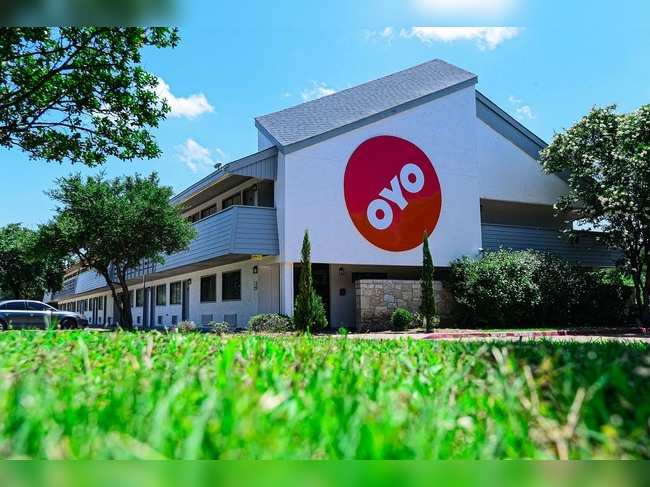
The verdict of the Arbitral Tribunal comprising former Chief Justice of India AM Ahmadi came on Saturday, and found the term sheet—signed in November 2015 by SoftBank-backed Oyo to acquire Zo—to be a binding agreement.
Elevate Your Tech Prowess with High-Value Skill Courses
| Offering College | Course | Website |
|---|---|---|
| IIT Delhi | IITD Certificate Programme in Data Science & Machine Learning | Visit |
| IIM Kozhikode | IIMK Advanced Data Science For Managers | Visit |
| IIM Lucknow | IIML Executive Programme in FinTech, Banking & Applied Risk Management | Visit |
“The claimant cannot be held responsible for the acts and omissions of the respondent and/or its shareholders, by virtue of which some of the obligations could not be fulfilled by the claimant... This tribunal has held that claimant no. 1 is entitled to claim/pray for the relief of allotment of shares from the respondent to claimant nos. 2 to 17,” read the order.

The arbitrator, however, struck down Zo’s pleas for $17 million in damages, a $1-million payment to the company founders and alternative settlement of around $89 million.
Discover the stories of your interest

ET reviewed a copy of the term sheet between Zo Rooms and Oyo, which states that total shares issued— both preference stock and equity shares—shall not exceed 7% of the fully diluted shareholding of the acquirer (Oyo).
Oyo Strongly Refutes Claims
The Gurugram-based company strongly refuted the claims by Zo Rooms that the Arbitration Tribunal had granted any relief in terms of receiving ownership in Oyo.
Oyo was last valued at an estimated $9 billion, when it raised Rs 54 crore from Hindustan Media Ventures Ltd. as part of its Series F1 round in January. This is down from a peak valuation of $10 billion, when the company raised $1.5 billion from founder Ritesh Agarwal, SoftBank Group and other investors in October 2019.
“The final award purports to provide Zostel a right to initiate ‘appropriate proceedings’ and for seeking execution of the definitive agreement, while no specific remedy was granted, except against their prayer for a cost, which Oyo will vehemently oppose in all avenues available under the law of the land,” Oyo said in a statement.
The company added that it was “evaluating legal remedies” to challenge the tribunal’s ruling, as it treated a non-binding document such as a term sheet as a binding document.
Long Legal Wrangle
The order comes after a three-year-long legal spat between Oyo and Zo Rooms, following failure of proposed acquisition owing to issues with an early investor in Oyo—Venture Nursery. Zo then claimed it was owed a 7% stake in Oravel Stays and approached the Supreme Court for a legal remedy.
The court, in October 2018, further directed arbitration to settle the dispute and appointed Ahmadi as the sole arbitrator in the petition filed by Zo Rooms.
Some legal experts are of the view that Saturday’s ruling does, in fact, require Oyo to allot 7% shareholding to Zo and its shareholders, including New York-based investment firm Tiger Global and Orios Venture Partners.
“The tribunal gave importance to the overall intent of the term sheet, rather than the written words, which stated that term sheet is non-binding,” said Shiju PV, senior Partner, IndiaLaw LLP.
Two Sides
However, legal opinion on the matter was divided, with Nilesh Tribhuvann, managing partner at White and Brief Advocates and Solicitors, saying that “the term sheet is binding only to the parties who are signatories".
“In my opinion, the claimant ought not to have initiated arbitration proceedings against non-signatories to the term sheet. The basic requirement of sending a notice prior to initiation of the arbitration proceedings is also not being complied with. This itself is a legal and subjective ground to vitiate the entire proceedings,” he pointed out.
Zo Rooms, in its statement, said that if the arbitration order is taken into effect and its shareholders are allotted 7% in Oyo at its current valuation of $9 billion, it would be counted as the biggest exit in India’s startup ecosystem, surpassing the $400 million Snapdeal-Freecharge deal of 2015.
Oyo, on the other hand, said Zo Rooms continues to “misrepresent and latch on to Oyo,” maintaining that both parties were still in the discussion stage and no definitive agreements were finalised.
















 Get Unlimited Access to The Economic Times
Get Unlimited Access to The Economic Times
